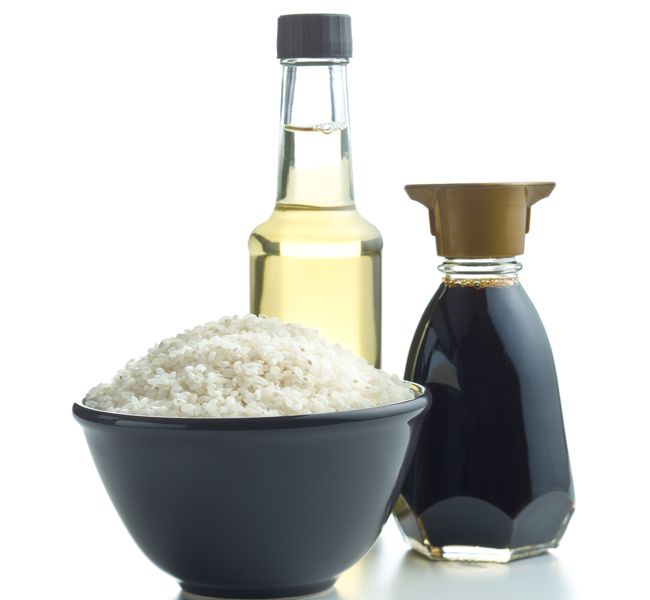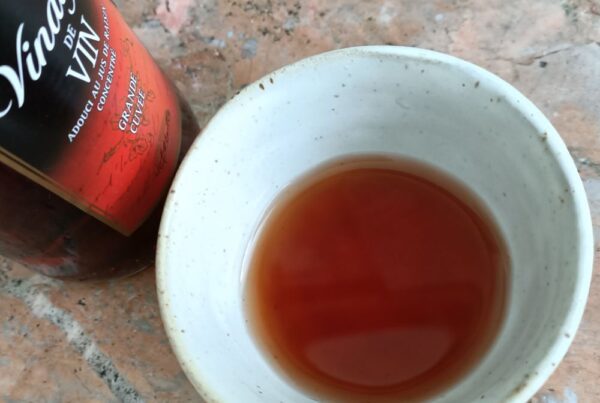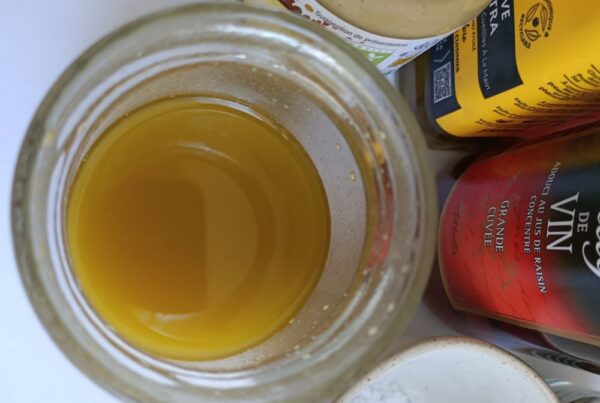Is rice vinegar versus rice wine vinegar the same thing?
In this article, you will learn the differences between these two popular pantry staples, their distinct flavors, culinary uses, and which one might be the best fit for your recipes.
Contents
The difference between rice vinegar and rice wine vinegar
Rice wine vinegar and rice vinegar are the same thing.
Rice wine vinegar is simply another name that references the fermentation process that converts the rice into alcohol and then into vinegar.
Rice wine vinegar and rice vinegar can be used interchangeably in cooking as they are the same product despite being labelled differently.

What is rice wine vinegar?
Rice wine vinegar, or rice vinegar, is a type of vinegar made from fermented rice.
It is made by fermenting the starches and sugars in rice until they convert into alcohol and then eventually into acetic acid. The acetic acid is what gives the vinegar its acidic taste.
Rice wine vinegar can be made with white, brown or black rice.
It is commonly used to add acidity to many Asian dishes, such as sushi or Chinese stir-fry.
It’s also used to make salad dressings, dipping sauces, marinades and it is used in pickling.
The difference between rice wine and rice vinegar
Rice wine is a sweet wine that can be consumed as an alcoholic beverage.
Common rice wines include Japanese sake, Chinese Shaoxing wine, and Japanese mirin.
It is used in Asian cooking in the same way that Western cooking uses regular wine – the alcohol is evaporated through heating it.
Rice wine is therefore not a good substitute for rice wine vinegar, as one is a wine and one is a vinegar.

What is seasoned rice vinegar?
Seasoned rice vinegar is rice vinegar that has added sugars and salts.
It is typically used to flavor sushi rice or as part of a vinaigrette in salads. It should not be used as a substitute for rice vinegar, which is much milder.
You can, however, make your own seasoned rice vinegar by adding salt and sugar to regular rice wine vinegar.
How to substitute rice wine vinegar/rice vinegar
There are several alternatives you can use in your recipes for rice vinegar and rice wine vinegar.
These alternatives can be effective substitutes for rice vinegar or rice wine vinegar depending on the flavor profile you’re aiming for in your dish.
Experiment with small amounts to find the perfect balance for your recipe.

White Vinegar
This vinegar has a similar level of acidity to rice vinegar, making it a suitable substitute.
It’s made from distilled grains, with a sharp, tangy flavor.
Use it in a 1:1 ratio in recipes that call for rice vinegar.
Apple Cider Vinegar
With its fruity undertones, apple cider vinegar can be used as a substitute for rice vinegar.
It adds a slightly sweeter flavor, so you may want to adjust the amount of sugar in your recipe accordingly.
Use it in the same quantity as rice vinegar.
Lemon or Lime Juice
For a fresh and citrusy alternative, lemon or lime juice can work well in place of rice vinegar.
They provide a similar level of acidity and can add a bright flavor to your dish.
Start by using half the amount of lemon or lime juice compared to the rice vinegar called for in your recipe, then adjust to taste.
White Wine Vinegar
While not as mild as rice vinegar, white wine vinegar can be used as a substitute in recipes where its slightly stronger flavor won’t overpower the dish.
It’s made from fermented white wine and has a clean, acidic taste.
Use it in a 1:1 ratio as a replacement for rice vinegar.
How to substitute rice wine?

You can substitute rice wine with mirin (but use slightly less as it has a stronger flavor), sake, dry sherry or a dry white wine.
Read with confidence: I am a certified wine expert (WSET L3).




